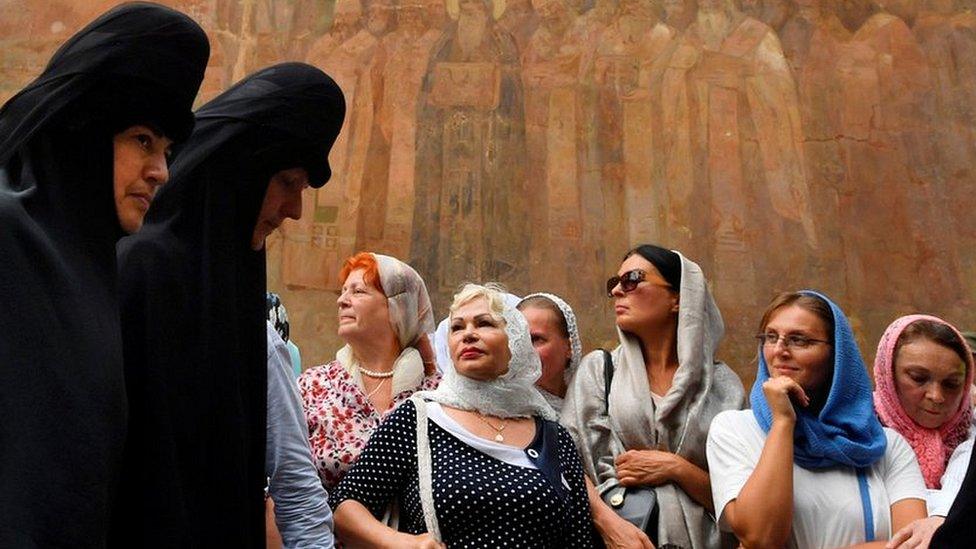Ukraine war: Orthodox clerics say they will not leave Kyiv monastery
- Published
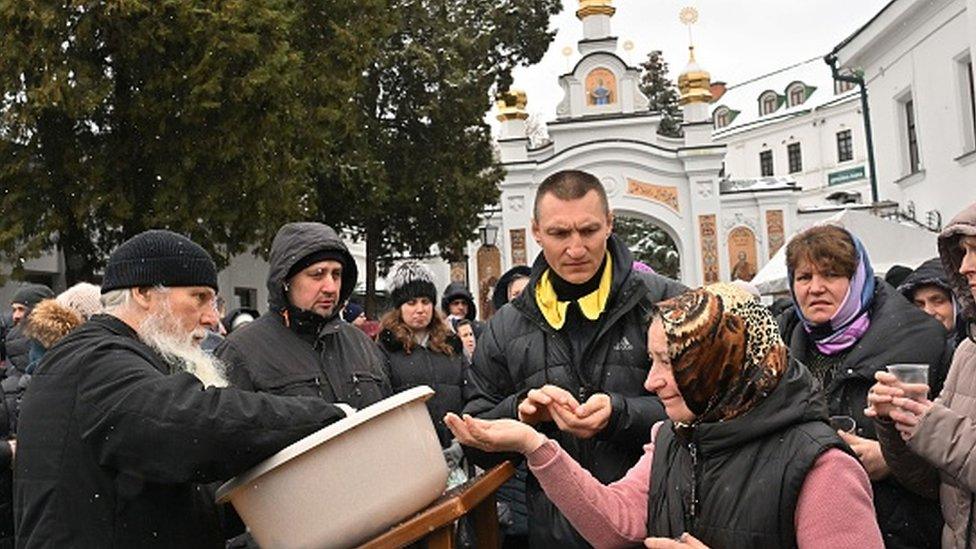
Hundreds of worshippers attended a service at the monastery on Wednesday
Orthodox Christian clerics say they will stay at a historic monastery in the Ukrainian capital, Kyiv, despite a planned government-ordered eviction of hundreds of priests, monks and students.
The Pechersk Lavra is a seat of Ukraine's Orthodox Church (UOC), which split from the Moscow patriarchate after Russia's invasion last year.
But Ukrainian officials suspect some of the top clergy have maintained ties with the Church in Moscow, which they deny.
The UOC has been ordered to leave the site by the end of Wednesday.
The Ukrainian government, which owns the vast 11th Century monastery overlooking the Dnipro river, says the decision was taken after a commission discovered multiple violations of the tenancy agreement of the complex, a Unesco World Heritage Site.
Metropolitan Clement, head of the UOC press office, said there were "no legal grounds" for the expulsion, announced earlier this month.
"If the government forces us to do it illegally, it's called totalitarianism," he told the BBC. "We don't need such a state or government. We have the constitution and laws. We don't accept other methods."
The issue is also highly political. Ukrainian authorities accuse some UOC members of covertly supporting Moscow during the war, although some leaders have denounced the Russian invasion.
Last year, Ukraine's security service carried out a raid of the Lavra and other buildings belonging to the UOC, and dozens of clerics have been arrested on accusations of treason and collaboration with Russia. The UOC, however, says there is no evidence to support the charges.
On top of that, last year a criminal inquiry was opened after a video emerged of pro-Russian propaganda being sung, referring to the awakening of Mother Russia, while the head of a diocese in the Vinnytsia area of central Ukraine was charged with preparing leaflets supporting the invasion.
On Wednesday morning, hundreds of worshippers gathered outside the complex under a light snowfall to attend Mass. Like in recent days, police were inspecting cars entering and leaving the site, but the situation remained calm.
The expulsion has exposed divisions among the Ukrainian Orthodox community. In recent years, many have joined the independent Orthodox Church of Ukraine, which was granted independence in 2019, while millions still follow the UOC, which split from Moscow last May after centuries under its control.
Lubov Bank, a 60-year-old choir singer from the central city of Poltava, said she had been demonstrating at the Lavra for three days, and called the decision to expel the monastery's residents a "political decision". "They [the government] don't follow the constitution," she said. "Monks are real angels. I don't want the authorities to do this."
It is not clear what will happen if the UOC does not leave the complex, but the Ukrainian culture minister, Oleksandr Tkachenko, said the authorities would not use force to expel the monks.
The Russian Orthodox Church has echoed the rhetoric of the Kremlin in justifying the war in Ukraine. Its head, Patriarch Kirill, has suggested in sermons that Russia's war is a righteous one about the future of Christianity and failed to unequivocally condemn the killing of innocent people in Ukraine.
You may also be interested in:
Watch: A virtual journey through Ukraine’s bombed cities
Related topics
- Published22 November 2022
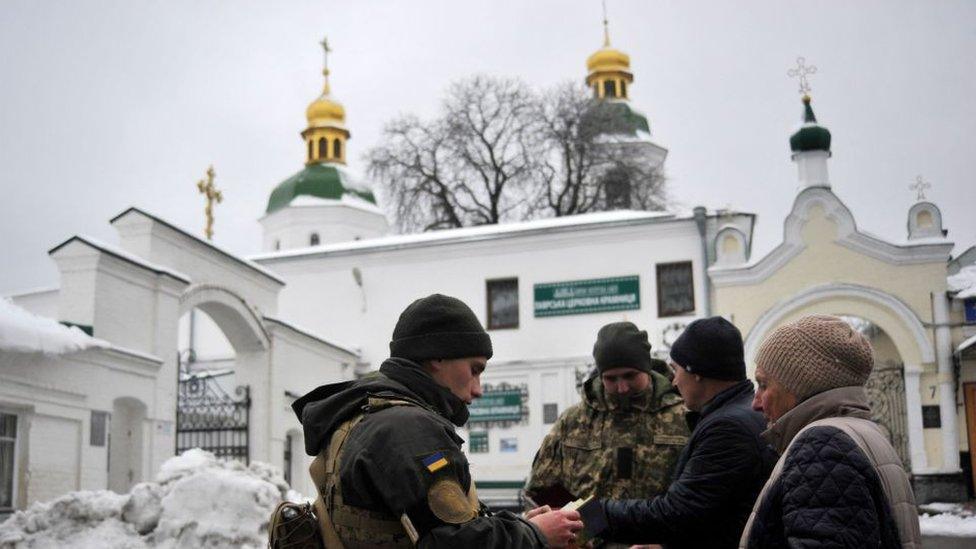
- Published5 January 2019
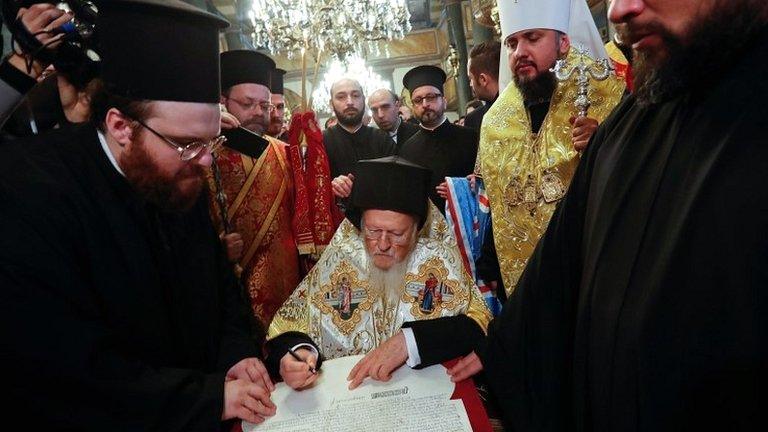
- Published15 December 2018
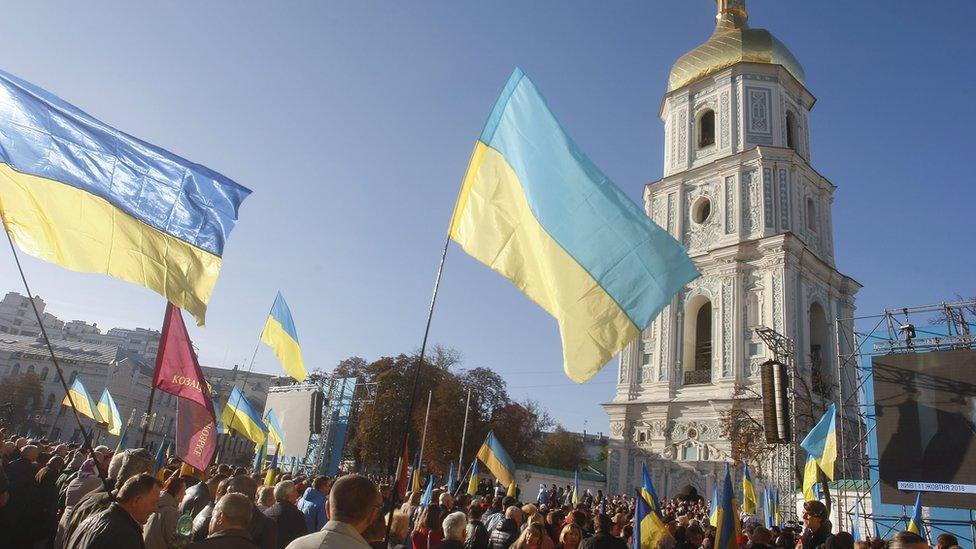
- Published3 September 2018
